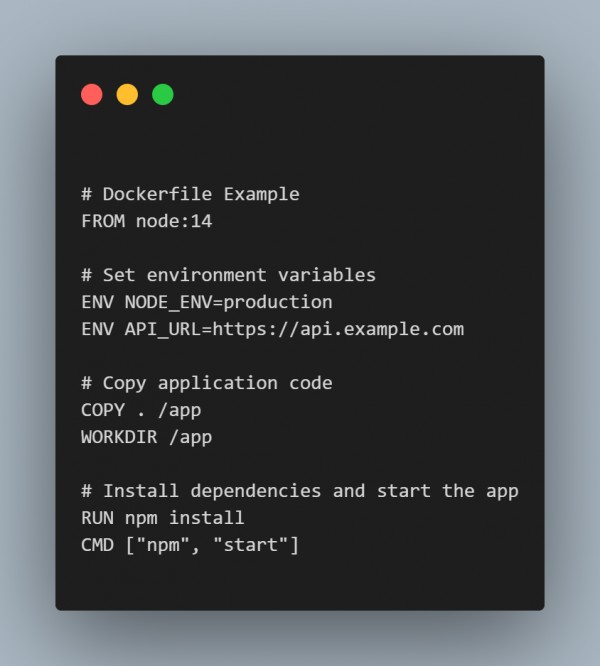In DevOps processes, maintain environment variables that will sustain the enhancement of security and scalability and easy setup for different environments such as development, testing, and production. Some of the best practices and coding techniques that are included are:
1. Tools for Environment Variables
Docker Secrets and Configs: Primarily used in Docker Swarm or Kubernetes environments for safely managing and distributing sensitive information such as passwords and API keys.
- Kubernetes ConfigMaps and Secrets: ConfigMaps include non-sensitive data and Secrets manage sensitive data. These can be injected into containers as environment variables or mounted as files.
- Vault by HashiCorp: It is one of the popular tools for managing secrets and sensitive data. It includes dynamic secrets, access control, and auditing capabilities, making sure that the environment variables are stored and accessed safely.
2.Environment variables in DevOps is one of the most important practices in securely handling configuration data, credentials, and secrets across multiple environments. Here are some effective strategies and coding techniques that worked great for me.
- Store environment variable files as Use .env files: In local development or in the Docker environment, I keep my .env files for storing variables specific to environments. These are usually directly loaded through dotenv in Node.js or python-dotenv for Python into the application, keeping the sensitive information out of the codebase.
- Use Secrets Management Tools: In production, secrets management tools like AWS Secrets Manager, HashiCorp Vault, or Azure Key Vault provide centralized and secure storage for environment variables. The handling of access control with these tools makes it easier to manage and rotate secrets safely.
- Leverage the Environment Variable Management capability of a CI/CD system. Many such CI/CD platforms offer ways to store and inject environment variables securely during deployment, such as Jenkins, GitHub Actions, and GitLab CI. With GitHub Actions, you can add secrets in the repository settings and reference them securely within your workflows using ${{ secrets.MY_SECRET }}.
- Config Maps and Secrets in Kubernetes-ConfigMaps and secrets by Kubernetes is a great method for managing environment variables for containerized applications. This provides a safe means of injecting variables rather than having them live in the source code.
Here’s a quick example of setting up environment variables in a Docker container:

This approach is scalable and reduces the risk of sensitive data exposure.
If you're looking for a better career, I personally suggest you take the DevOps Post Graduate Program!
 REGISTER FOR FREE WEBINAR
X
REGISTER FOR FREE WEBINAR
X
 Thank you for registering
Join Edureka Meetup community for 100+ Free Webinars each month
JOIN MEETUP GROUP
Thank you for registering
Join Edureka Meetup community for 100+ Free Webinars each month
JOIN MEETUP GROUP